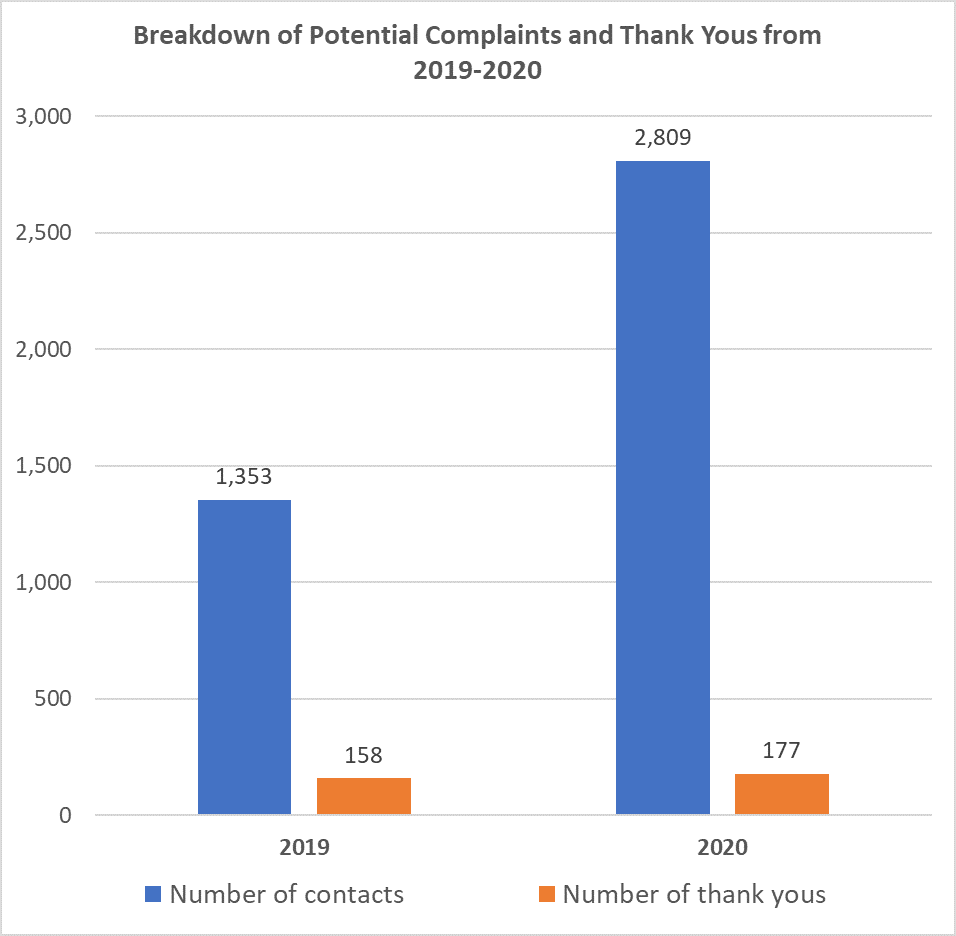Contacts between community members and OPO can originate online, in person, or by phone, email, or mail. Contacts may or may not result in a complaint.
Providing both a positive and negative feedback loop is essential to building trust between the community and APD. The number of contacts and thank yous the OPO received in 2019, and 2020 are illustrated in the chart below.

Note: The OPO saw a significant increase in the number of contacts in 2020 due to the protests against police brutality locally and nationally.


OPO staff reviews each complaint during the preliminary review and processes every contact in one of the following ways:
Not Applicable to OPO: OPO only handles complaints against Austin Police Department (APD) officers. Complaints that are not about APD officers do not apply to OPO.
Community Concern: Community concerns often lack the details needed for a formal complaint, such as time, date, and location. Community concerns can also be a more general concern about police behavior. OPO notifies APD of community concerns.
OPO Supervisor Referral: In some cases, the best resolution for a community member is to speak with an officer's supervisor. The APD supervisor will answer questions and address concerns from the community member. OPO notifies APD to contact the community member.
Formal Complaint: If OPO identifies potential policy violations during a preliminary review, OPO forwards the complaint to APD and recommends that APD investigate. APD determines whether an investigation will occur. OPO publishes redacted formal complaints on our website.
No Policy Violation: In some instances, OPO does not identify a potential policy violation. When no potential policy violation is identified, OPO notifies the community member, and the complaint is closed.

